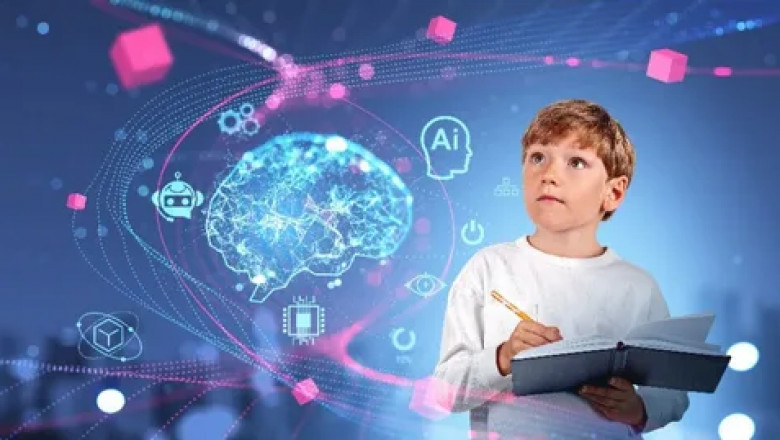views
The integration of Artificial Intelligence (AI) in education is reshaping how students learn, teachers instruct, and institutions operate. One of the most transformative aspects of this integration is personalized learning—an approach that tailors educational experiences to individual students’ needs, learning styles, and pace. As classrooms become more diverse and digitized, AI offers promising solutions to longstanding challenges in education.
What Is Personalized Learning?
Personalized learning refers to instructional methods that adapt content, learning pace, and delivery methods to meet the unique needs of each learner. Traditionally, teachers have had to balance the needs of many students within a single curriculum and timeframe. This one-size-fits-all approach often leaves some students behind while others feel unchallenged. AI helps overcome this by analyzing vast amounts of data to deliver customized educational experiences in real time.
The Role of AI in Personalized Learning
AI uses data analytics, machine learning algorithms, and natural language processing to understand student behavior and learning patterns. Here are key ways AI is enabling personalized learning:
-
Adaptive Learning Platforms:
Platforms like DreamBox, Carnegie Learning, and Knewton use AI to adjust lesson difficulty and pacing based on student performance. If a student struggles with a concept, the platform offers additional support or simpler explanations. If a student excels, the platform introduces more complex tasks. -
Intelligent Tutoring Systems (ITS):
These systems simulate one-on-one tutoring by providing instant feedback and guidance. They identify gaps in knowledge and recommend specific learning activities or resources. -
Predictive Analytics:
AI tools can forecast student performance by analyzing past behavior, attendance, participation, and test scores. Educators can use this insight to intervene early when students are at risk of falling behind. -
Natural Language Processing (NLP):
NLP enables AI to understand and respond to student queries in natural language. Chatbots and virtual assistants can answer questions, explain topics, and guide students through learning processes, offering 24/7 support. -
Customized Content Creation:
AI can generate quizzes, flashcards, and summaries tailored to individual learning paths. Tools like Quizlet and ScribeSense use AI to automate content creation and grading, saving teachers time and ensuring alignment with students’ progress.
Benefits of AI-Powered Personalized Learning
-
Enhanced Engagement: Students are more motivated when lessons match their interests and skill levels.
-
Improved Outcomes: Personalized learning can lead to better academic performance, especially for students who struggle in traditional settings.
-
Teacher Support: AI handles administrative tasks and provides insights into student needs, allowing teachers to focus more on high-impact interactions.
-
Equity in Education: By addressing individual learning gaps, AI helps level the playing field for students from varied backgrounds and learning abilities.
Challenges and Concerns
Despite its benefits, the use of AI in education comes with challenges:
-
Data Privacy: Collecting and analyzing student data raises concerns about privacy and consent.
-
Algorithmic Bias: If AI systems are trained on biased data, they may reinforce existing inequalities.
-
Teacher Displacement Fears: Some educators worry AI could reduce the need for human instruction, though most experts view it as a complement rather than a replacement.
-
Accessibility and Infrastructure: Not all schools have the resources or infrastructure to implement advanced AI systems.
The Future of AI in Education
Looking ahead, AI’s role in education will likely continue to expand. Innovations like emotion recognition, voice analysis, and augmented reality could further enhance personalized learning experiences. Additionally, global initiatives are emerging to ensure AI is used ethically and inclusively in education.
The key will be to strike a balance between leveraging technology and preserving the human elements of teaching—empathy, creativity, and critical thinking. Teachers will continue to play an essential role in guiding, mentoring, and inspiring students, even as AI handles more of the technical and analytical aspects of instruction.
AI is not a magic solution, but it is a powerful tool in the evolving landscape of education. Supporting personalized learning opens doors to more equitable, effective, and engaging learning experiences for all students.














Comments
0 comment